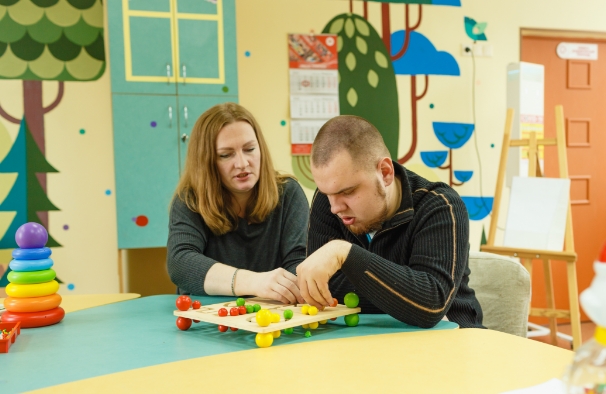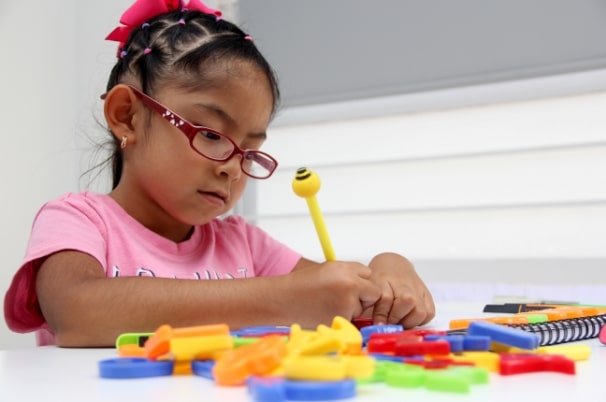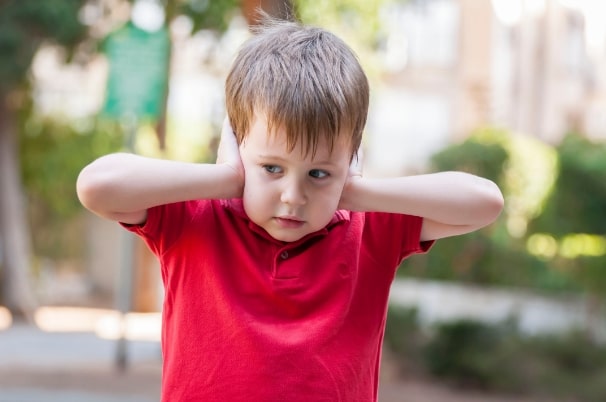What is Autism?
Hearing the word “autism” in a diagnosis can be scary. We believe that the best way to fight fear is with knowledge, so we created the Autism Toolkit to help individuals and families learn more, find resources that can help, and discover new ways to thrive.
What is Autism?
Autism Spectrum Disorder (ASD), or autism, is a developmental disorder caused by differences in an individual’s brain. To be diagnosed with autism, someone needs to show difficulty with social communication and have a rigid style of thinking.
- Social communication impairments could mean that someone has a limited vocabulary, uses language in an unusual way, or has an impaired ability to read body language and facial expressions.
- Rigid thinking may make autistic people resistant to change and insistent on “sameness” in their surroundings (toys must be arranged a certain way, daily routines must be followed without variation, etc.).

It’s important to remember that autistic people are born autistic. Life experiences cannot make someone autistic and autistic people will show signs of ASD throughout their lives.
The degree to which autism affects people’s lifestyles can vary quite broadly. Some individuals with autism need life-long care, while others can experience the same life milestones as their peers: going to college, getting married, and more. The signs and symptoms of autism can be managed with behavioral therapy and medications, but there is no cure.
Symptoms of Autism
How can you know if you or your child shows signs of autism? As part of the diagnostic criteria, autistic people must show social communication impairments and rigid thinking.
-
Some examples of social communication impairment include:
- Gaze avoidance (unwillingness to make eye contact)
- Inability to read body language
- Limited facial expressions
- Not responding to their name
- Not engaging in play or conversations with others
- Not speaking or using very short sentences
- Limited vocabulary

-
Some examples of rigid thinking include:
- Repeating certain words and phrases over and over again (echolalia)
- Intense interest in specific topics or objects (special or restricted interests)
- Repeating certain gestures or body movements (such as rocking or hand flapping)
- Strictly following routines
- Arranging items in a specific way and getting upset if the arrangement is disturbed
- Insisting that particular tasks are performed the same way every time

-
Autistic people might also show:
- Sensory sensitivities (autistic people might be hypersensitive to sounds, smells, and textures and may react very strongly to them)
- Gastrointestinal issues (usually constipation)
- Picky eating
- Intellectual impairment (present in approximately 31% of people with autism)
- Delays in motor development
- Disrupted sleep (inability to sleep through the night)
- Mood disturbances (could be unusually anxious or aggressive)
- Meltdowns (panic-attack-like tantrums that are triggered by anxiety and/or sensory overload)

How is Autism Diagnosed?
Autism can be reliably detected in children as young as 18 months. Many of the treatments for autism symptoms are most effective while children are still young, so the earlier a child can be diagnosed, the sooner they can begin early intervention therapies, and the better their long-term cognitive outcomes will be.
Unlike most medical disorders, autism is not diagnosed based on laboratory testing – there aren’t any blood tests or medical assays. Instead, autism is diagnosed based on certain behaviors that a child or older individual displays.
If a child is suspected of having autism, a doctor or caregiver will send the child to a specialist who can do more in-depth testing. That testing will usually be done over a few hours and will use a standardized screening tool such as the Autism Diagnostic Observation Schedule (ADOS) or Autism Diagnostic Interview-Revised (ADR-I).
Specialists may also suggest genetic testing for the child and consider the child’s developmental milestones achievement. Based on the results of the screening, developmental milestone monitoring, and genetic tests, the specialist should be able to determine whether a child has autism. If a child is diagnosed with autism, there are a variety of early intervention therapies available that can teach children skills that will help them thrive.
For more information, please see our “ASD Screening Tools” and “Early Intervention Therapies” articles.
